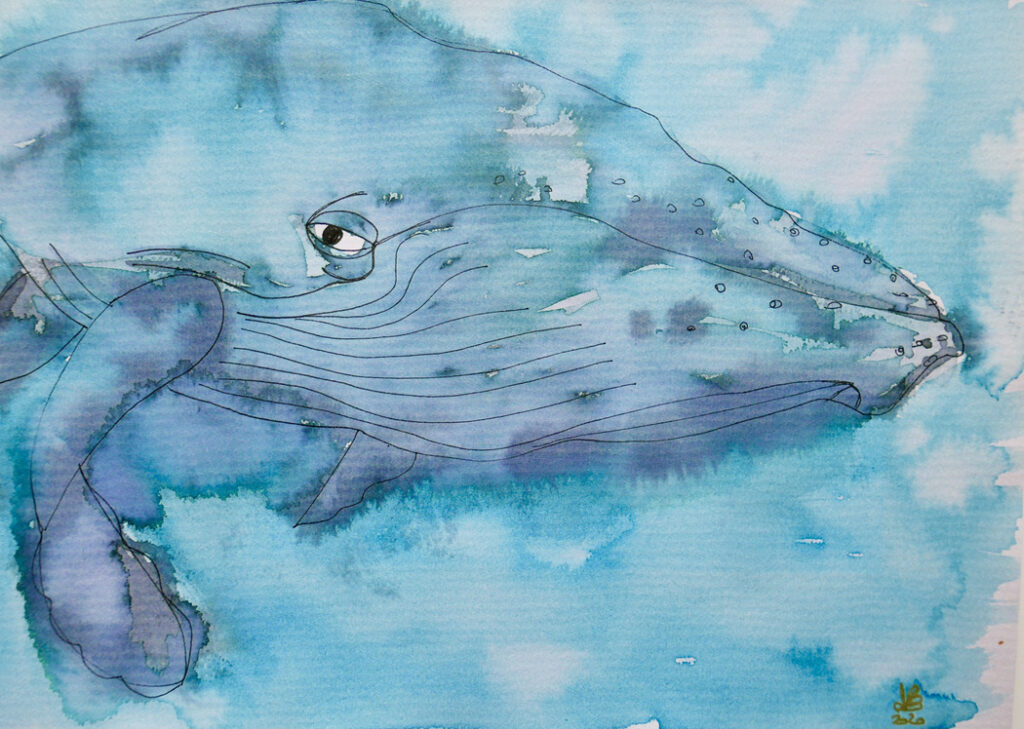Pathway Description
In an era marked by unprecedented environmental challenges, the vast expanse of our oceans stands at a critical juncture. From exploring previous learning pathways on this platform such as The Ocean and Human Rights, The Ocean and Climate Change and The Cultural Heritage and Ocean Governance, you’re likely well aware of the urgent need to change the way we think about the ocean. This is where the Blue Humanities enters the discussion. The Blue Humanities is an interdisciplinary, multidisciplinary, and transdisciplinary field that brings together disciplines such as Literature, History, Cultural studies, and the Arts (among others), to explore human relationships with the sea. Blue Humanities scholars posit that our connection to the ocean is goes beyond scientific understanding or economic exploitation: that the crucial aspect of human connection with the ocean is cultural, emotional, and spiritual. They further argue that the source of the ocean’s current crisis is also cultural and societal, driven by the political systems adhering to capitalist logic. However by seeing the source of the crisis as cultural and societal, Blue Humanities scholars, like Serpil Oppermann, simultaneously argue that ‘the possibilities for any hopeful change are [also] socially and culturally situated.’ For these precise reasons the current era is framed as the Anthropocene (the age of human). However, as many scholars and activists vociferously argue the term is inadequate, because it attributes the imperial, colonial and corporate violence against the ocean, the people, and the terrestrial environments alike to the whole humankind. This is why, for many, the term ‘Capitalocene’, which we will revisit in our Module 1, is deemed more appropriate.
This learning pathway seeks to offer insights into these entanglements through a series of materials written and curated by scholars from the Humanities from a variety of geographic contexts.
Module 1 of this learning pathway explores the emerging field of Blue Humanities and its potential to reshape our understanding of and our relationship with the world’s ocean. Module 2 deals with the question: can humanities save the ocean by offering, among other things, a framework to contend with the histories and legacies of colonial regimes and their devastating impact on the ocean and on the coastal communities. Module 3 focuses on prospect of inclusive Blue Humanities as a field from which colonial legacies and capitalist logic can be examined, challenged, and resisted.
Time required for the completion of the full pathway: 1.5 hours
NOTE that you need not complete the entire learning pathway in one session.
Learning Objectives
By the end of this learning pathway, you will:
- Be able to define and discuss the Blue Humanities concept in the wider context of Environmental Humanities
- Be able to situate the notions of Anthropocene and Capitalocene within the Blue Humanities discourse.
- Have engaged with materials such as blogs, scientific articles, book chapters, and videos that discuss the potential Blue Humanities have in framing the ideas of the sustainable and inclusive stewardship of our ocean.
This learning pathway was written by Aphiwe Moshani, a Ph.D. candidate at the University of Cape Town and a One Ocean Hub ocean governance and coastal livelihoods ECR, and Dr Milica Prokic, One Ocean Hub Knowledge Exchange Associate.
Citation: Citation: Oppermann S. Blue Humanities: Storied Waterscapes in the Anthropocene. Cambridge University Press; 2023. (p.1)
Pathway Content
Module 1 Module 1: What are the Blue Humanities?
Blue Humanities is an interdisciplinary, multidisciplinary and transdisciplinary area of study that explores the multiple and complex relationships between the humans and the sea. As a new and thriving subfield of Environmental Humanities, Blue Humanities brings together disciplines such as Literature, History, Philosophy, and Cultural Studies, among others, offering a holistic understanding of our relationship with the waters of the world’s ocean. In the Blue Humanities thinking, the connection between the humans and the ocean is crucially cultural, emotional and spiritual, while not losing from sight the importance of the marine sciences. They further argue that the source of the environmental crisis of our time is also cultural and societal, driven by the capitalist political systems, which is why the current era is framed as the ‘Anthorpocene’. However, many people argue the term is inadequate, because it attributes the imperial, colonial and corporate violence against the planetary ecosystems to the whole humankind. Importantly, by seeing the source of the crisis as culturally and societally based, Blue Humanities scholars simultaneously argue that the sources of a hopeful and transformative change are also social and cultural.
Module 2 Module 2: Can the Humanities Save the Ocean?
The Blue Humanities has been framed as offering a pathway to not only deepen the understanding of the ocean but also to navigate the complex interplay between conservation, economic development, and societal well-being. The Blue Humanities delves into the connections between human societies and water across different oceanic regions, freshwater geographies, and the physical properties of water on a planetary scale. It aims to provide insights into new trends in intellectual culture and the enduring history of humans thinking with and about water, offering a holistic understanding of our relationship with this essential element.
Module 3 Module 3: An Inclusive Blue Humanities
Inclusive Blue Humanities in ocean governance represents an approach that emphasizes the integration of social justice, gender equality, and ethical considerations into the management and decision-making processes related to the oceans. As discussed above, Blue Humanities encompasses disciplines such as history, sociology, and cultural studies focused on the oceans. This plays a significant role in enhancing different kinds of knowledge and promoting inclusive practices in ocean governance. Therefore by adopting an inclusive approach, we challenge existing power structures that have historically dominated ocean governance. This includes questioning the colonial legacies that have shaped our understanding and management of marine resources.
